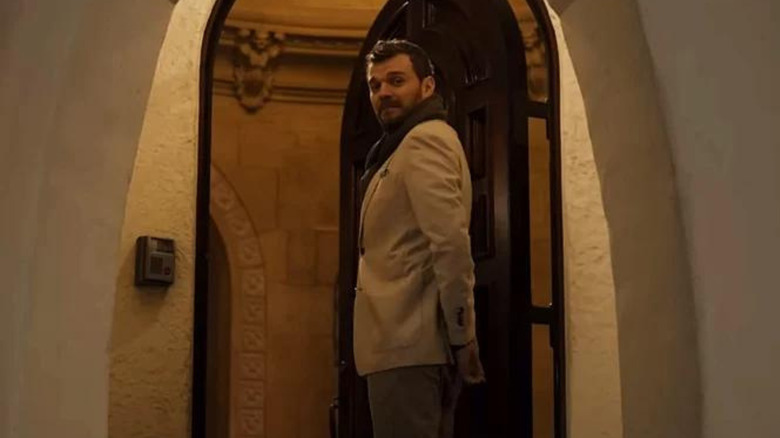
Pilou Asbæk has quickly become one of those actors that many might not immediately know by name, but certainly remember for his villainous characters. From Euron Grayjoy in "Game of Thrones" to Wafner in "Overlord," he's gotten quite good at portraying characters you are either terrified of or want to punch in the face.
When I spoke to him to promote his latest film, "Run Sweetheart Run," it turns out that he loves these types of roles, and this latest one is certainly no different. Asbæk plays Ethan, a mysterious man who meets an aspiring lawyer named Cherie (Ella Balinska) after an internal scheduling error. At least, that's what Cherie thinks. While the two initially hit it off, Cherie realizes that there is something far more sinister about Ethan than he lets on, resulting in a wild chase throughout Los Angeles. Before you turn on the film on Prime Video, check out our full, enlightening conversation below.
'No Matter How Bad A Person Is, It's Your Job To Make It As Nuanced As Possible'
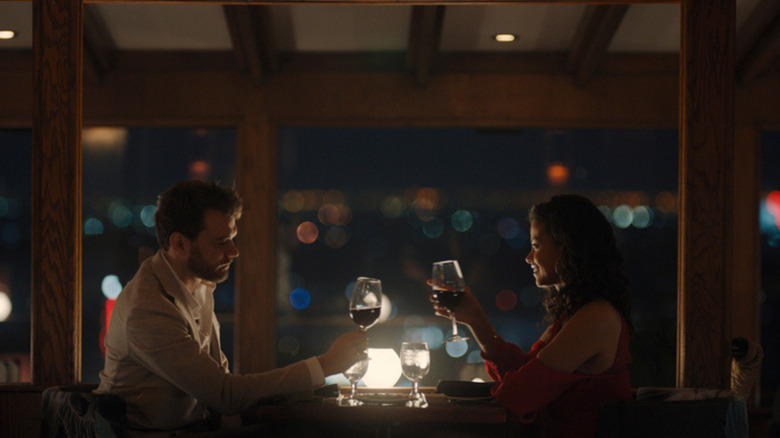
Let's start off with the obvious: Your character, Ethan, is a bit of a misogynistic tool.
[laughs]
Considering the intensity of the role and how topical it is, especially within the Hollywood sphere, how were you offered it and why did you agree to take it on?
I got the offer and I had a very long conversation with [director] Shana [Feste] and the casting director, because you want to do a good job. As an actor, you want to defend your character. No matter how bad a person is, it's your job to make it as nuanced as possible.
One of my favorite films is called "Der Untergang." It's a very humane portray of Hitler and his last days in a bunker. But I don't see it as a story about Hitler. I also see a story about a man trying to fight for what he believes in, and I see an actor (Bruno Ganz) creating a character that we all hate and we all know, and humanizing it. That might be weird, it might be wrong, it might be whatever, but as an actor, you admire the work that that person did because it was very good. It was very deep. So you're trying to do the same, even though this is much more part of the pop culture, horror genre film in America, and the audience is completely different.
Your first job is, no matter what kind of tool you are, to defend your character, and it's to make it as nuanced as possible. So for me, what I was drawn to was, that I had done a lot of villains at the time: "Game of Thrones," an action film with Jackie Chan in China which hasn't been released yet because of Covid, and some other works.
I got the chance to do 15 minutes of good guy and then 75 minutes of bad guy. But those 15 minutes, I needed it, because I thought it was so wonderful that the more charming, the more fun, the more seductive, and the more me who I am -- sometimes, if I want to show that side of me -- the more evil and terrifying and demon-ish I could be for the rest of the film. And the iconic villains that I love, they always want to get world domination, or money, or something.
He just wants to have a feast. He just wants to eat. So I thought that was funny, and I thought I had never done a villain like this. I was intrigued, and Ella was on board. This is a good cast. It's a good crew. We were shooting in L.A., and I've never shot a film in L.A.
'I Wanted To Live L.A. By Night'
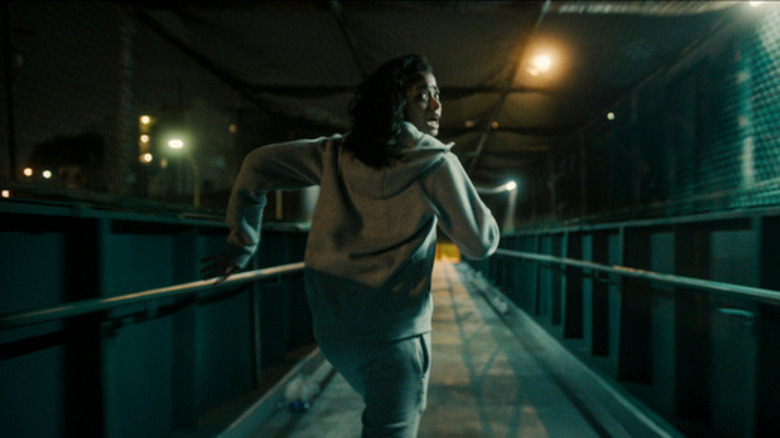
Really?
No! I wanted to see this side of L.A., I wanted to live L.A. by night. Often [journalists] go, "Why were you so attached?" Or "Why were you so attracted to the script and the storyline?" I was like, "I thought it was fun. I want to see L.A. and I like the people behind it."
Fair enough.
Yeah. I wish it was something like, "I want to portray the men and his evilness." No, no. That was a bonus.
I've never heard somebody just say, "I wanted to do something just because it was cool."
Yeah. As an actor, I come from Denmark. The community and movie industry in Denmark is so much smaller than it is in America. I got a chance to shoot a film in Hollywood, that's pretty big for a Danish guy. And I ended up enjoying it. I ended up having one hell of a ride.
'You Cannot Have The Transition From Good To Evil If You Haven't Done A Hint'
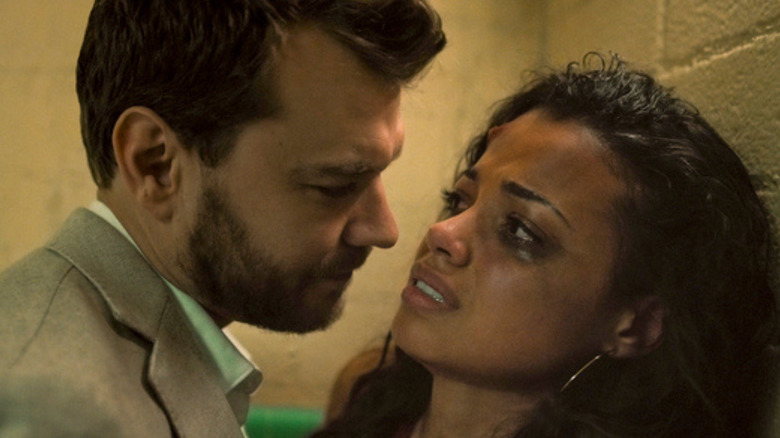
I want to go back really quickly to what you were talking about, regarding the first 15 minutes of your character and the other 75. Even in those 15 minutes where you are a relatively "good" guy, there are some hints that something isn't exactly right. How did you ensure that you weren't going overboard with being obvious that this guy might not be who he seems, so that audiences don't question why Cherie stays in the first place?
It's a thin red line. You need to make that balance very realistic. The first cue, the first kind of Easter egg, whatever it's called over here, is with the dog in the restaurant.
That's where it's like, you find him attractive enough to stay, but you also feel a little bit offbeat. The reason why we did [that] with the dog is we had to [introduce] a dog as his kind of, I'm not saying a nemesis, but we had to use the element of a dog. Secondly, people react very individual regarding animals. Some people freak out. Some people love 'em. So it would be a natural way of saying if something was off. You're a great moviegoer, you analyzed it, you would [be suspicious]. But for some other people who were watching the film, they would go, "No, but there's a dog. And it kind of attacked him, and of course you would react."
But it's an overreaction. It's like, "Come on." But it was very important for me that with the overreaction, you would also have the exact opposite: One big excuse. Because the moment you overreact, he goes on the defense. He goes, "I'm so sorry, I didn't mean it at all." So you would go like, "Oh, he knows. He knew he overreacted and now he's giving you an apology. All right. He's okay."
But the reason why we needed it as well was that you cannot have the transition from good to evil if you haven't done a hint. You would be breaking the convention of the storytelling if you didn't have it as an introduction in one of the first scenes. So that's why we needed it, and didn't cut it out.
'I Come From Theater, So I Have A Lot Of Respect For The Captain'
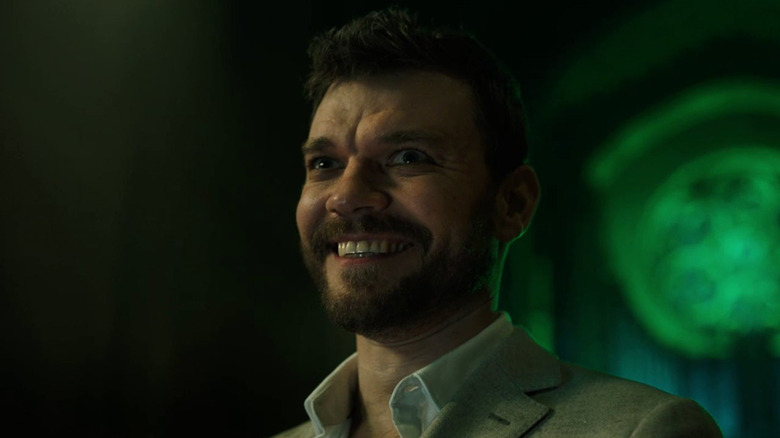
As an actor, as somebody who was reading the script in real time, how was your initial reaction to seeing the true motivations for your character play out in the script?
For me, I saw it much more as tableaus. The big chronological explanation of a character you can do and you should do, but you're doing for yourself, and not always necessarily for the audience, but I think the storytelling is up to the director. So for me, what I think is important is, I have seven scenes in this film. In this film, I would say each and every one of those scenes, I will do something unique or something interesting or something that would make each scene say something about my character.
That's how I've always worked. I did it on "Game of Thrones." Sometimes the director appreciates it and accepts it. Sometimes they don't. It's the collaboration. But I come from theater, so I have a lot of respect for the captain. That captain can be a female or a male, I don't care. I have a lot of respect for the director and what that person says, so if that person says, "I want to go right," it's my job to go right. I don't want to fight with that person. I want to give that person every single opportunity to create the best possible film. If I disagree, I shouldn't do the movie.
That's not to say that you cannot have arguments and fights on set because you have to agree on the characters and the storyline. But I'm more like, "That's going to be your problem. I'm going to do every scene different ways, and then you edit it."
'I Love Storytelling. That's The Reason Why I Keep Doing It'
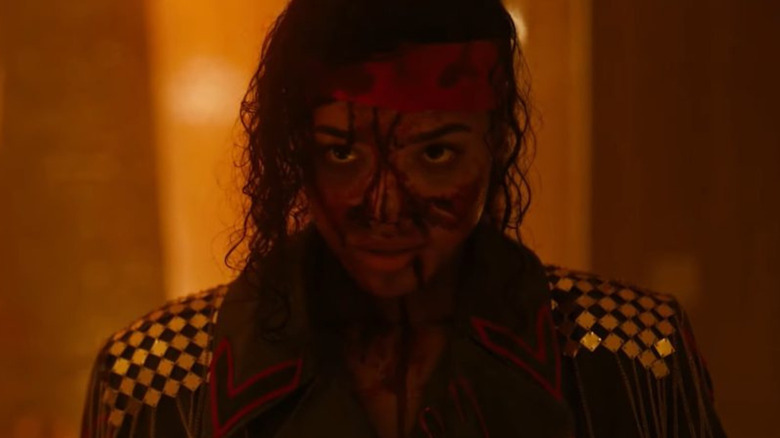
That sounds fair.
It's like a factory. I bring red. You're doing a painting, and I come with 10 different versions of red. Now pick the red you want. That's okay. I don't need my ego. I don't need the world to go, "Wow, great. He's f***ing amazing."
No. I need the director and the director's colleagues to go, "I want to work with that guy." Because when I get my cake out, I'm sad to say -- and I'm being very honest now -- I like talking to you, but that's not my mojo. That's not my mushy mushy. My mushy mushy is creating characters, and working with people who love characters and storytelling, and that's my kick. This is a bonus. I get to meet you. We get to communicate and you show it to the world, along with the film. And I'm thankful for that. But my kick and why I keep doing it, and I've done it for 20 years, is I love storytelling. "You've done 85 villains, Pilou. How can you keep on doing villains?" Because each and every one of them has been different. I might not have made it good, but I try to dosomething. That's the reason why I keep doing it.
"Run Sweetheart Run" is now streaming on Prime Video.
Read this next: Horror Roles That Changed Actors Forever
The post Run Sweetheart Run Star Pilou Asbæk Explains Why He Wanted to Play Another Villain [Exclusive Interview] appeared first on /Film.
0 Commentaires